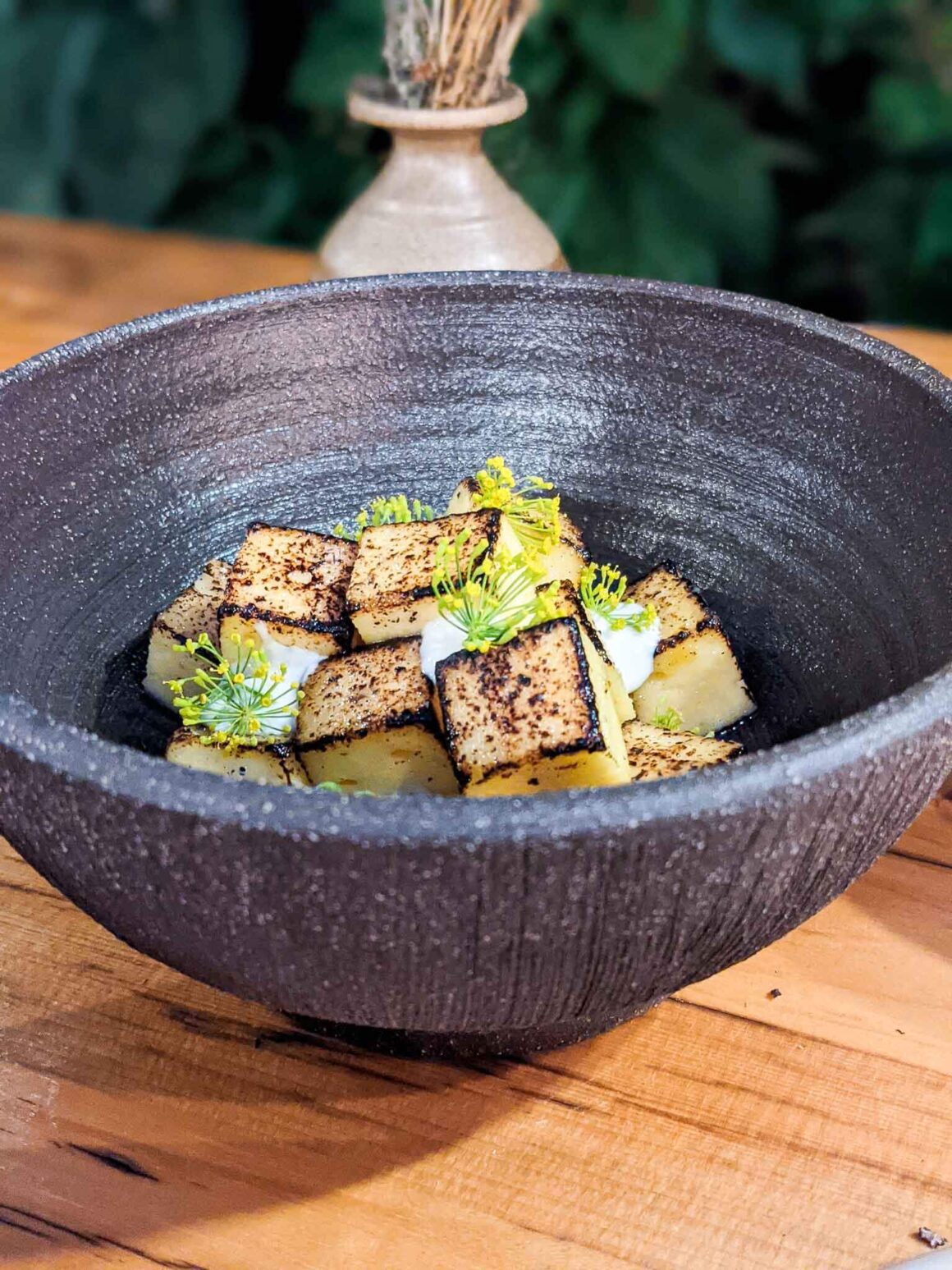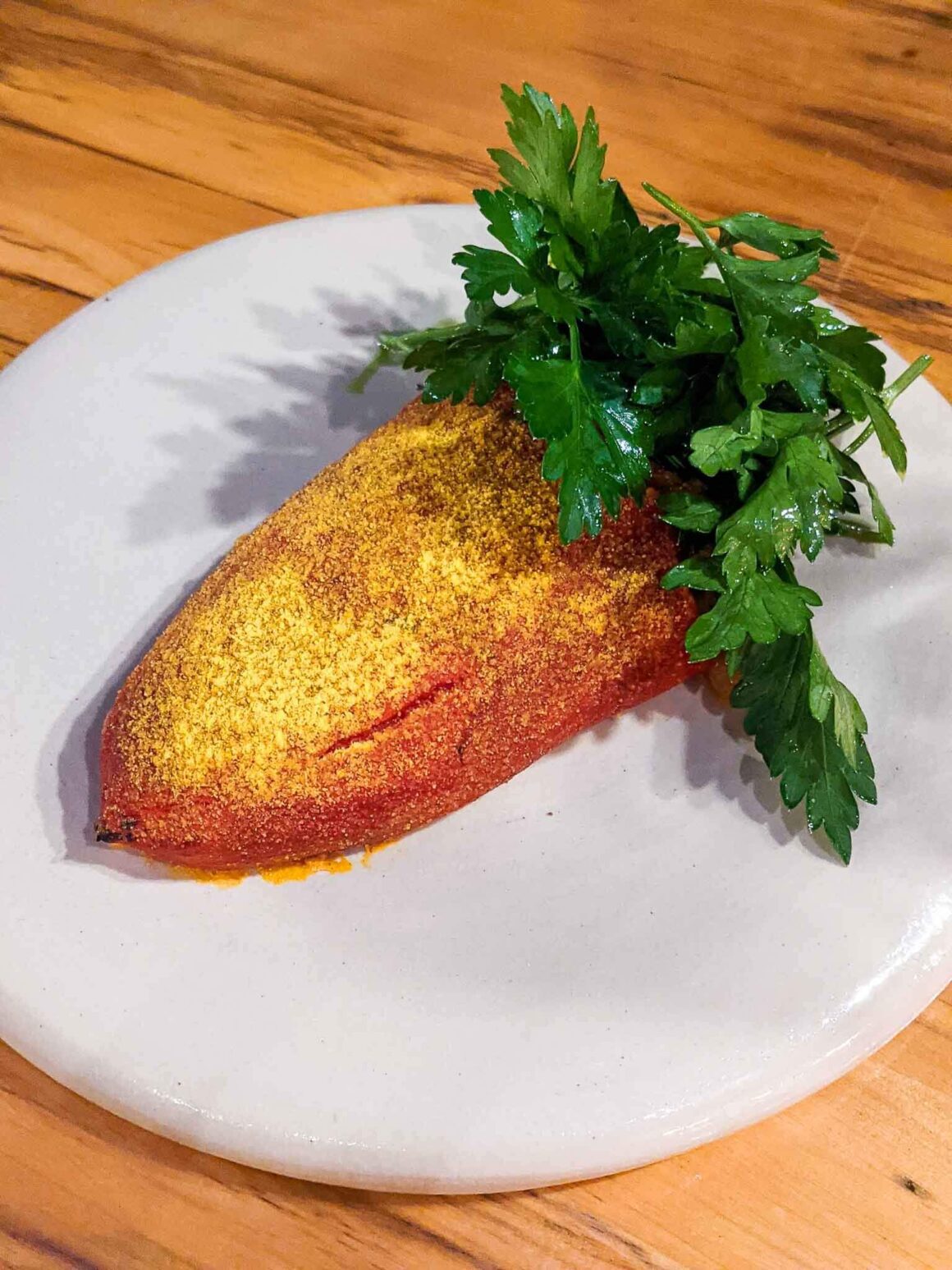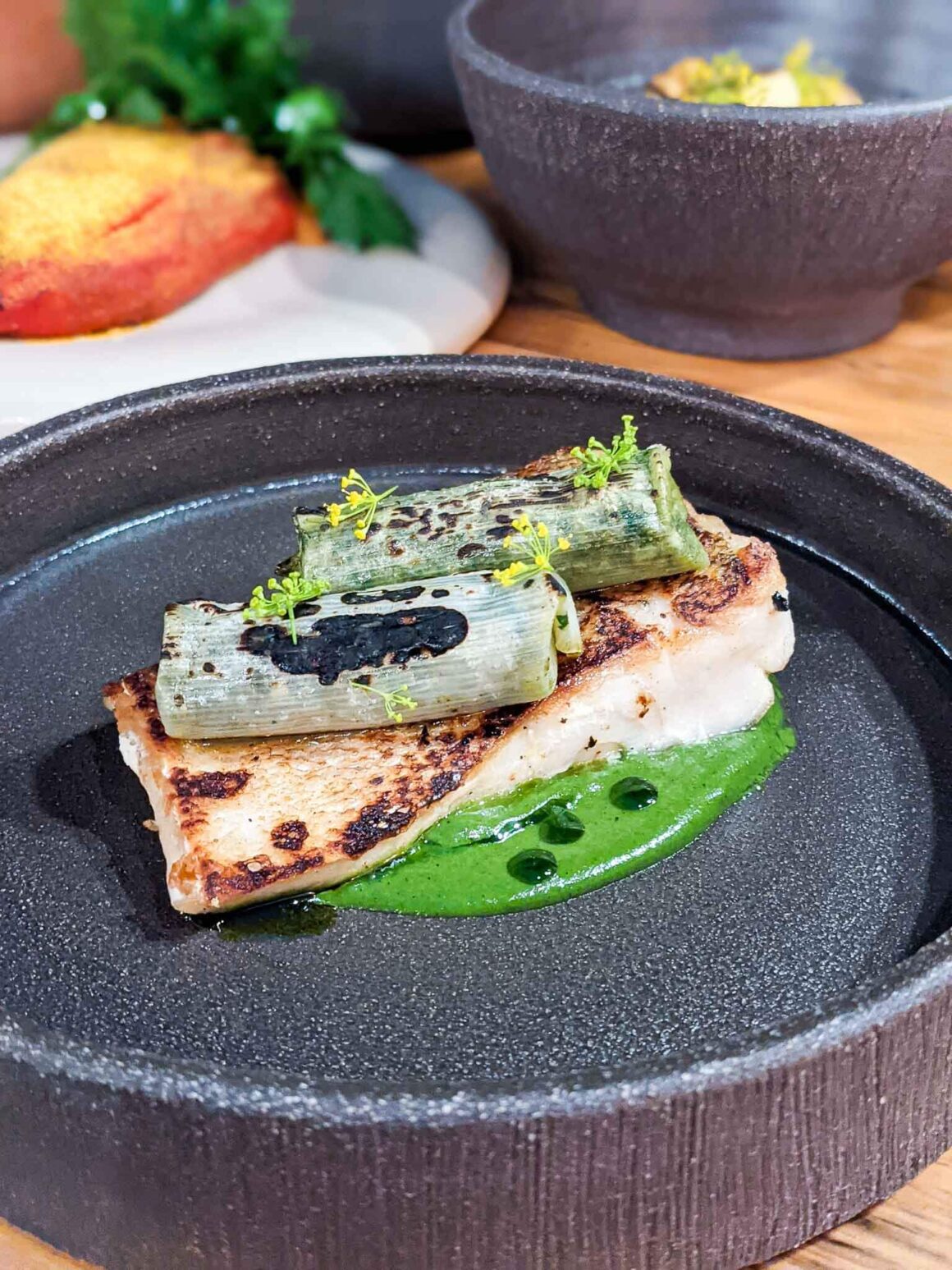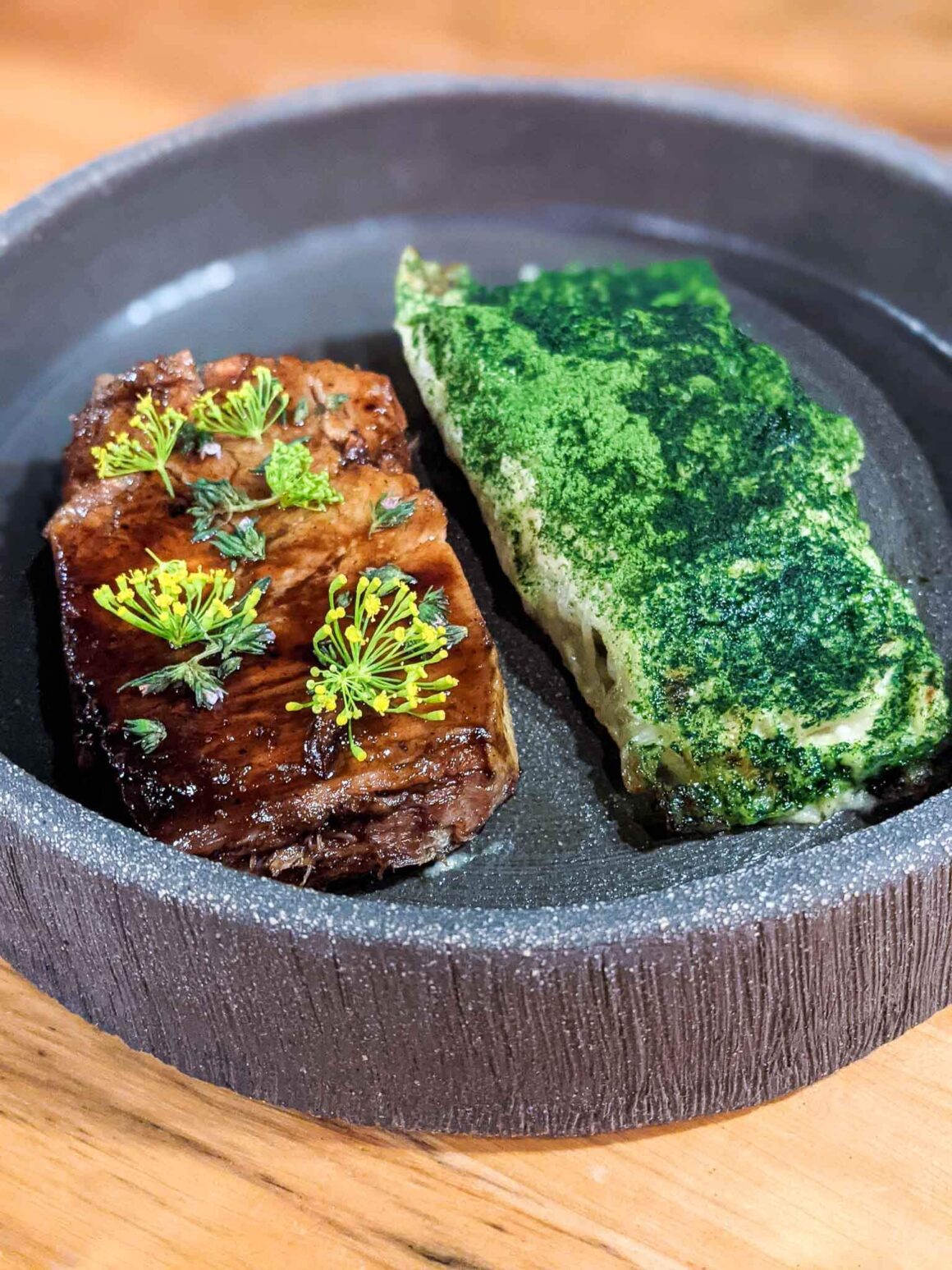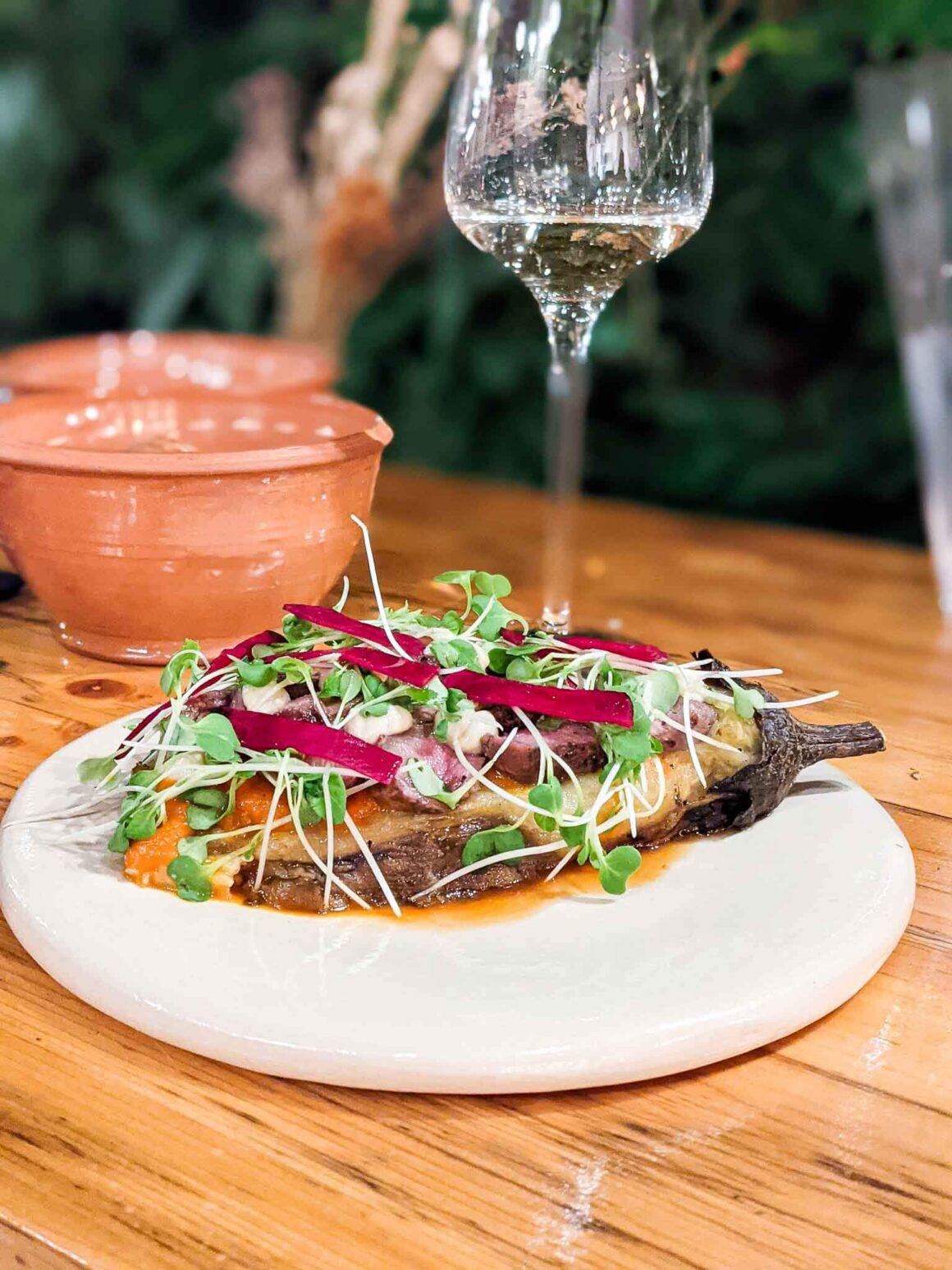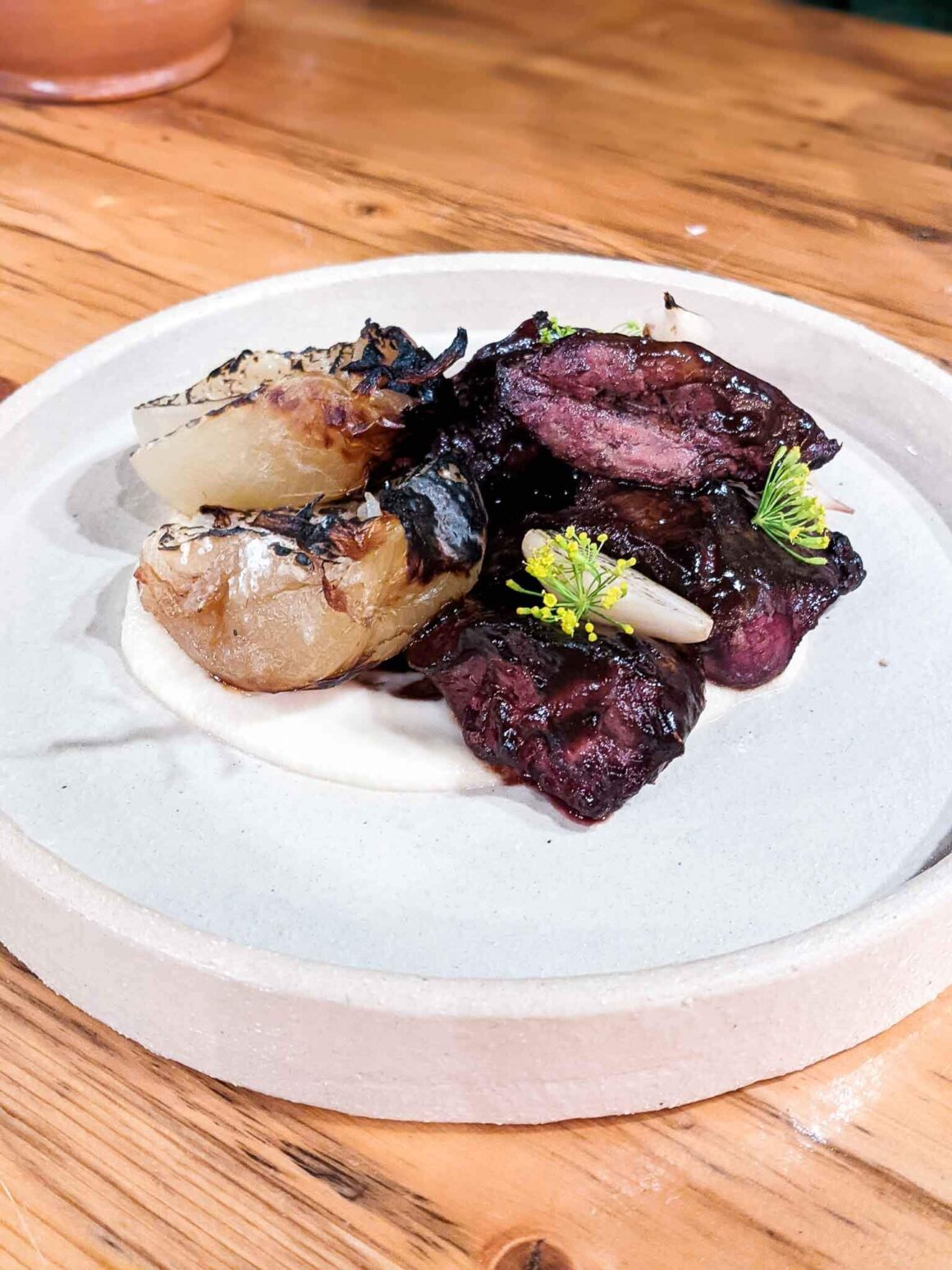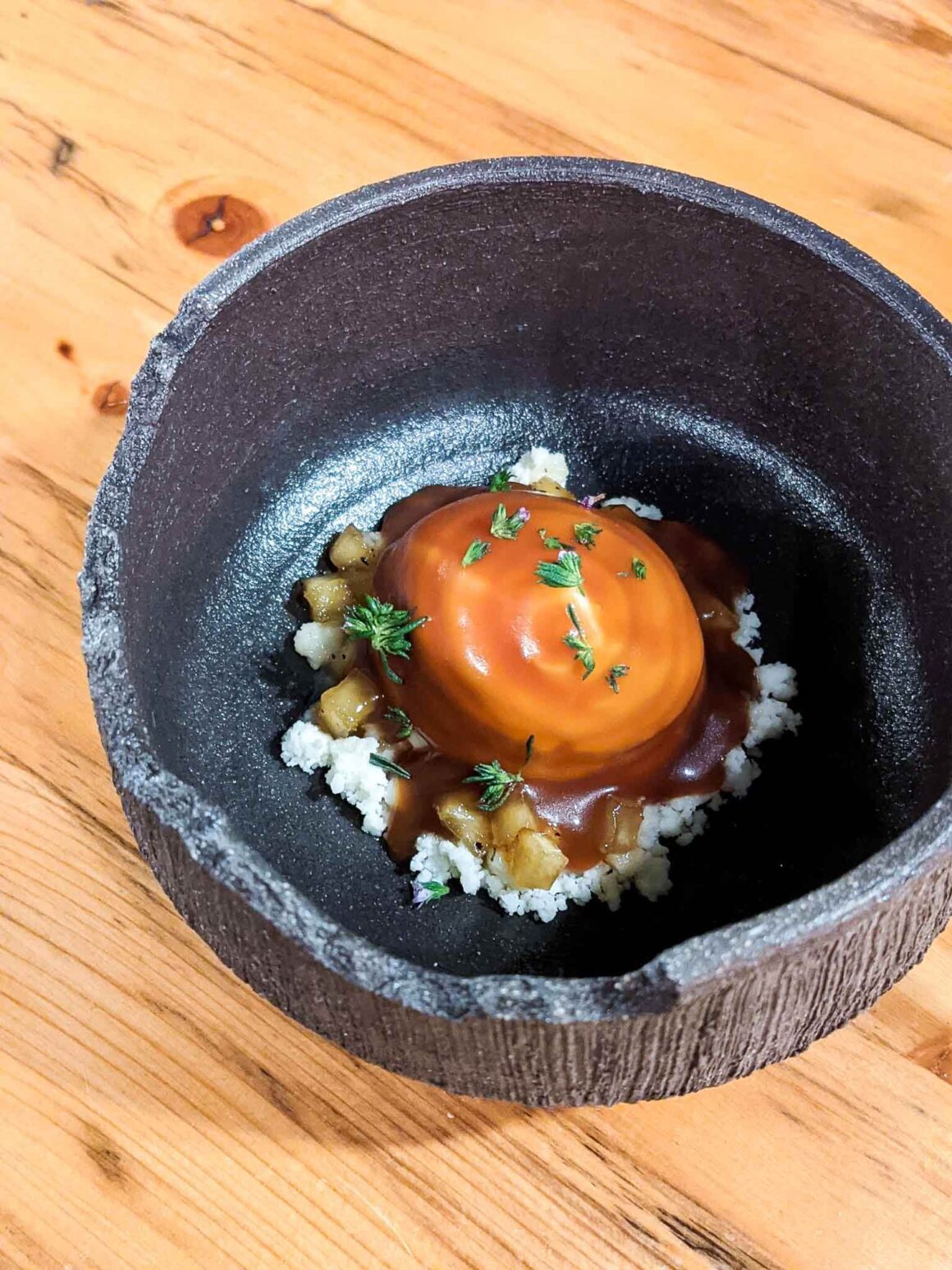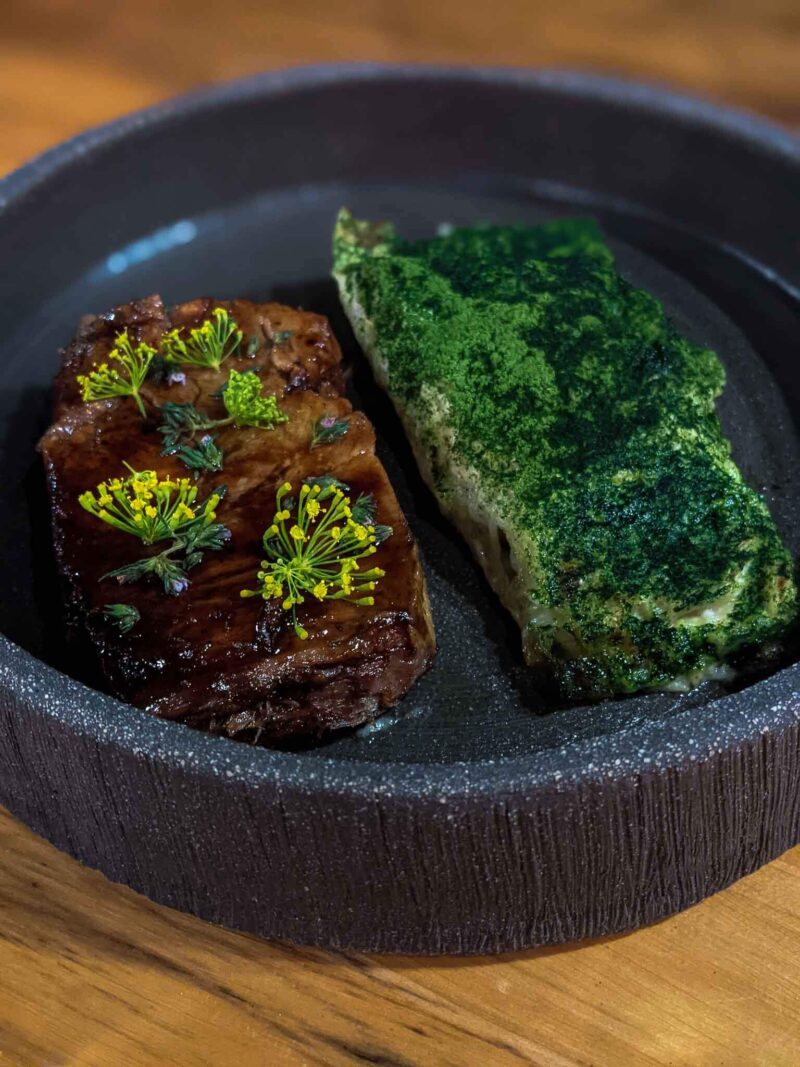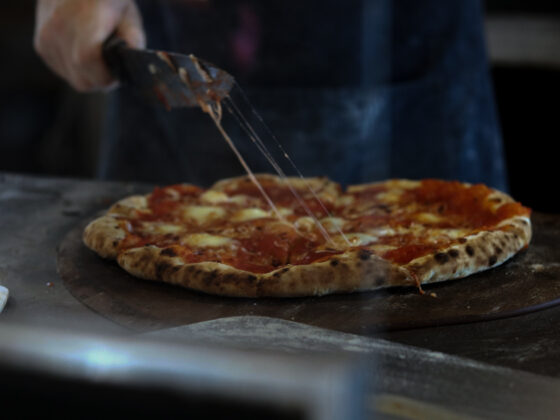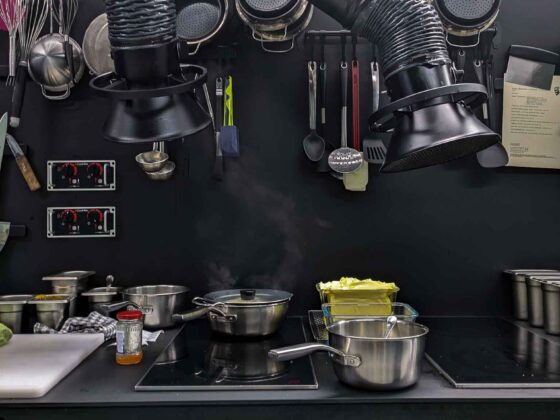Moving away from the idea of fine dining (arguably more exclusive than inclusive), Soro Lume invites all those curious to taste the country’s history and tradition in contemporary fashion – but through plates of delicious food that are swirled onto tables to traditional tunes. When Mihai Toader (the head chef) and Melinda and Claudiu Teohari join forces, the result can only be great.
The short à la carte menu (as opposed to the usual tasting menu of other restaurants with a similar theme), tells a story that has culminated after years of field research, one that celebrates food and all that it entails, just like Maria Tanase celebrates life in the song with the same name as the restaurant. Mihai showcases his dedication for local and seasonal ingredients through daily farmers’ market visits with his team – and so, the menu itself, changes and evolves with the seasons.
The dishes are straightforward, yet elegant and the cooking itself happens in a wood fired oven, and a wood fired oven only – one that Mihai himself drew, inspired by traditional ovens from around the country. With an outdoor kitchen, dining outside when the weather is gentle is a pleasure, even more so with a glass of palinka from their carefully curated selection. Who knew palinka would be as exciting as trying an exquisite whisky?
If you grew up in Romania, you will undoubtedly find a dish or an ingredient that will instill a feeling of nostalgia, which, paired with the restaurant’s music, will take you back in time – the steamy kitchen windows as grandma cooked soup, the smell of grandpa’s chicken liver stew, or you, stirring in polenta for what felt like an eternity when you were a child. And then, the plates arrive, and with a bite or two, those childhood memories remain just an anchor, as you are taken on a dance of flavours and textures that display a sophistication fit for today’s dining aspirations.
Soro Lume is amongst the handful of restaurants in Romania that successfully manage to transform local cooking tradition. They achieve that through craft, knowledge and a constant eagerness to bring back what was covered with a veil through the rationing and lack of access to ingredients of communist times and industrialisation, altogether.
